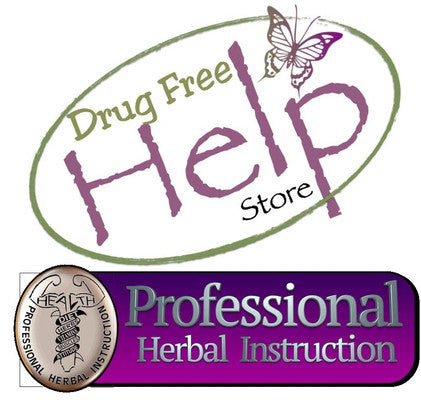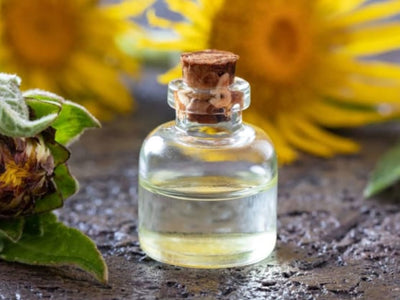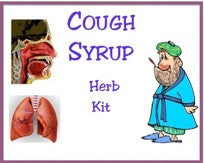7 Tips to Strengthen Your Lungs
Posted by emily on

Q: My lungs seem weak. I live in a fairly large city, and the pollution really bothers me. I cough a lot, but it’s not like I have a cold or flu. How can I strengthen my lungs?
—Joni E., Cleveland
A: Good question! For starters, always inhale through your nose when possible. The nose hairs help filter out particulate matter, something that is unavoidable when you’re breathing in city air. At the most basic level, the lungs are responsible for delivering oxygen into the bloodstream, and they provide a very fancy filtration system. Coughing is a functional response to clearing irritants. Asthma and hay fever are the two major types of lung distress that do not involve infection. If a person’s immune system can’t handle a noxious insult to the lungs, bronchitis can develop. If not resolved, this can further deepen into pneumonia.
1. Use Herbal Teas, Manuka Honey, & Green Tea
If you do not have an infection (which usually includes fever, fatigue, and colored phlegm), then avoid antibiotics. Pure water and warm teas are fantastic medicine for your lungs. Don’t neglect these simple remedies. Readily available teas—or volatile oils, which are useful diluted with hot water and taken as a steam inhalation (see below “Use Essential Oils for Congestion”) —to help clear your lungs include eucalyptus, thyme, myrrh, sandalwood, fennel, and lobelia. If you have a nagging cough, 1–2 tsp. of manuka honey in fresh-squeezed hot lemon water can be miraculous. Other effective herbs for coughs include hyssop, cypress, cedarwood, bergamot, chamomile, and cajeput (similar to tea tree). Green tea, high in the pigment epicatechin, is one of my favorite gentle bronchial stimulants. If you’re prone to asthma or hay fever, consider drinking green tea regularly.
Did You Know?
Warm herbal teas are fantastic medicine for your lungs. Try eucalyptus, thyme, myrrh, sandalwood, fennel, or lobelia.
2. Take Glutathione & NAC
The most important antioxidant for our lungs is glutathione (GSH), a sulfur-containing compound. This molecule is composed of three amino acids: N-acetyl cysteine (NAC), glycine, and glutamate. NAC is the most prevalent part of GSH and helps thin mucous secretions and make coughing more production. I call NAC the “discount glutathione” because GSH (especially in the optimal liposomal form) is quite expensive. When I’m helping a patient who is at risk of moving from a sore throat to a chest infection, I encourage them to sip on my favorite GSH (Readisorb), 1 tsp., 5–8 times daily for 3–5 days. This almost always prevents a full-blown lung infection.
3. Use Sulfur
In the old days, before antibiotics, sulfur was often the antimicrobial medicine of choice. Native Americans revered the sulfurous hot springs all over the country. On the arduous journey home after Sacagawea escaped her captors, she was said to have developed pneumonia, but cured herself by lying next to a sulfur hot spring and breathing in the fumes and resting for several days. For patients with bronchitis or the beginning stages of pneumonia, I apply a mustard poultice (mustard is yellow because of the high sulfur content) to a patient’s chest in the office and park them under a heat lamp for 20 minutes to help clear their lungs.
4. Avoid Asthma Triggers
Another type of lung irritation is asthma, which has become increasingly common. Triggers include dust mites, cockroach droppings, pollens, feathers, and food allergens (especially dairy, but also eggs, shellfish, peanuts, wheat, chocolate, citrus, and food colorings). You can control what you put in your mouth better than what’s floating around in the air—so make sure to exert control over your allergy response by assessing food irritants. If your symptoms are worse in the spring, tree pollens are probably the culprit. If worse in the summer, grass and weed pollens are usually the problem. Some people develop hay fever in response to airborne fungal spores, which are most prevalent from April to November, or during rainier seasons.
5. Find Hidden Causes of Weak Lungs
Besides food irritants (which you can avoid) and environmental pollutants (which are harder to avoid), overly sensitive lungs may signal an immune deficiency or inability to clear pollutants. You may need to dig a bit to figure out what’s bothering your lungs. Low tryptophan and low vitamin B levels both contribute to troubled lungs. Food additives (artificial dyes, especially the yellow tartrazine, preservatives, and sulfites) are well-known irritants. Beer and wine are high in sulfates,
as are commercial salad dressings, “dressed” potatoes (like potato salad at a restaurant), and prepared dips.
6. Implement Day-to-Day Strategies
Day-to-day strategies to keep your lungs healthy are similar to keeping the whole of you healthy: drink plenty of water, get enough sleep, and eat a healthy, plant-based diet. If you need animal protein and digest it well, free-range eggs and wild salmon are good choices. Also, spend time outside in nature whenever possible. Trees inhale carbon dioxide and exhale oxygen—we couldn’t survive without them. The Japanese have a cherished tradition that has been celebrated around the world called “forest bathing.” We might call it a walk in the woods. Keep your lungs healthy—and help keep the planet healthy—by advocating for green spaces in your community.
7. Use Essential Oils for Congestion
Here’s a natural way to ease congestion in your lungs and sinuses: Place 5–6 drops of pleasing essential oils* into a fairly large bowl and add 2 cups of hot water. Sit comfortably at a table so you can place your face over the steaming bowl and cover it all with a towel over your head and shoulders so no steam escapes. Keep your eyes closed and your forearms resting on the table on either side of the bowl. Breathe in the aroma of the steam deeply for several minutes. Bonus: you’ll get a nice facial as well!
* Easy-to-find essential oils to try are eucalyptus, thyme, myrrh, sandalwood, fennel, hyssop, cypress, cedarwood, bergamot, chamomile, and cajeput.
Written by emily for Better Nutrition and legally licensed through the Matcha publisher network. Please direct all licensing questions to legal@getmatcha.com.

![[Podcast] Keep your Respiratory System Healthy](http://www.drugfreehelpstore.com/cdn/shop/articles/TROHT_9-17-2019_198d34a5-0f28-4593-9920-9a9cc3a56e05_400x.png?v=1586897214)


![[Podcast] How Deep is your Well?](http://www.drugfreehelpstore.com/cdn/shop/articles/2-18-2022_sm_400x.jpg?v=1645211875)

![[PODCAST] Sage and what it can do for you.](http://www.drugfreehelpstore.com/cdn/shop/articles/TROHT_1-9-2020_5c20f134-651c-431d-aa4d-388c94a43aba_400x.jpg?v=1586897174)

![[Podcast] Eww the FLU!](http://www.drugfreehelpstore.com/cdn/shop/articles/eww_the_flu_podcast_400x.jpg?v=1484172165)